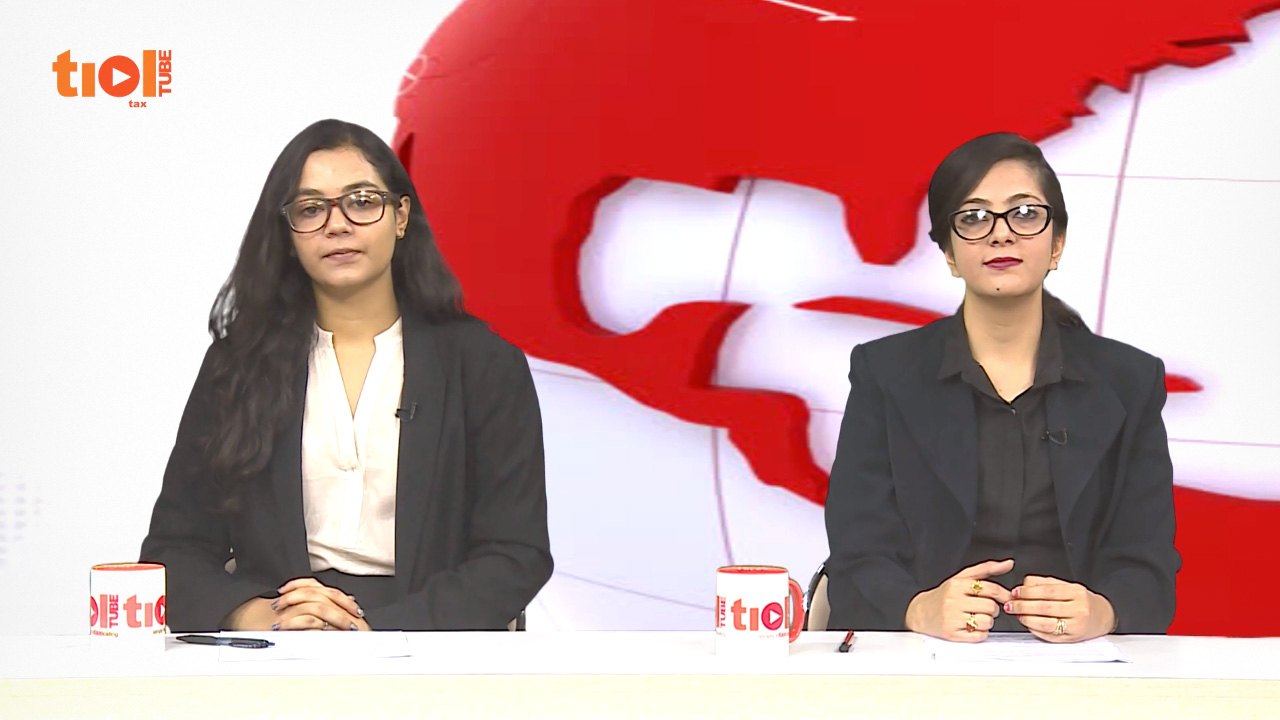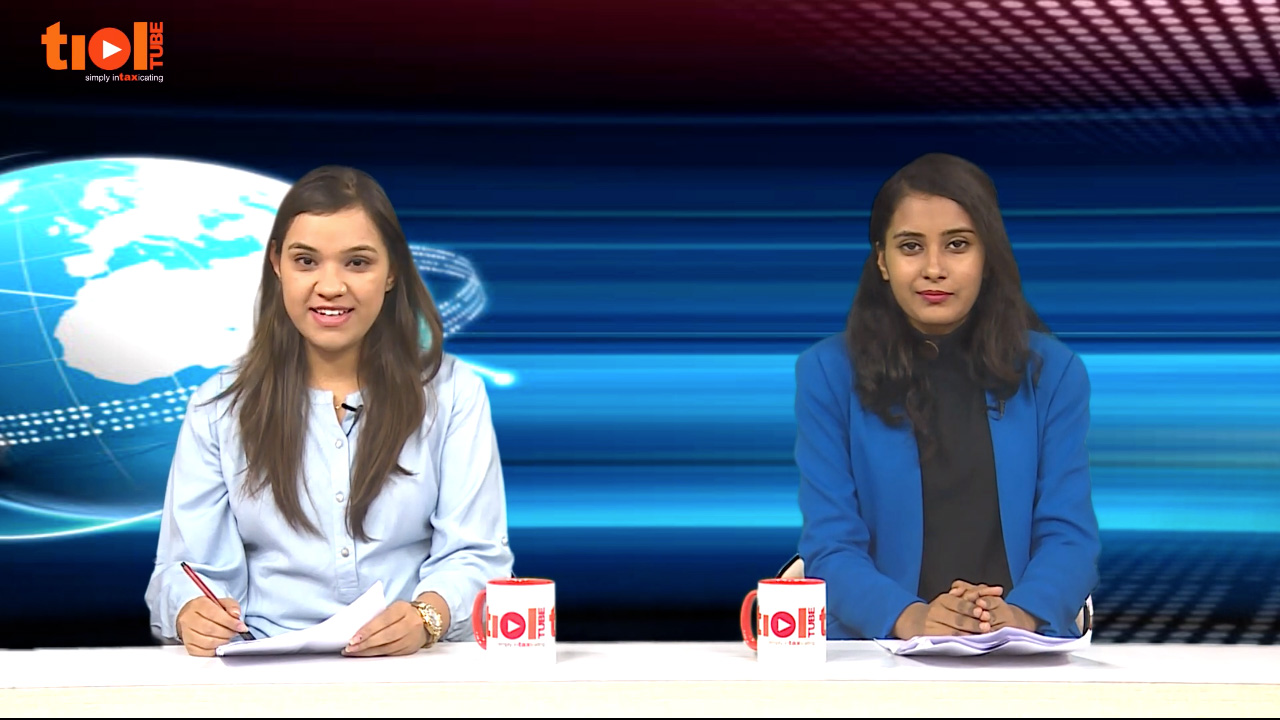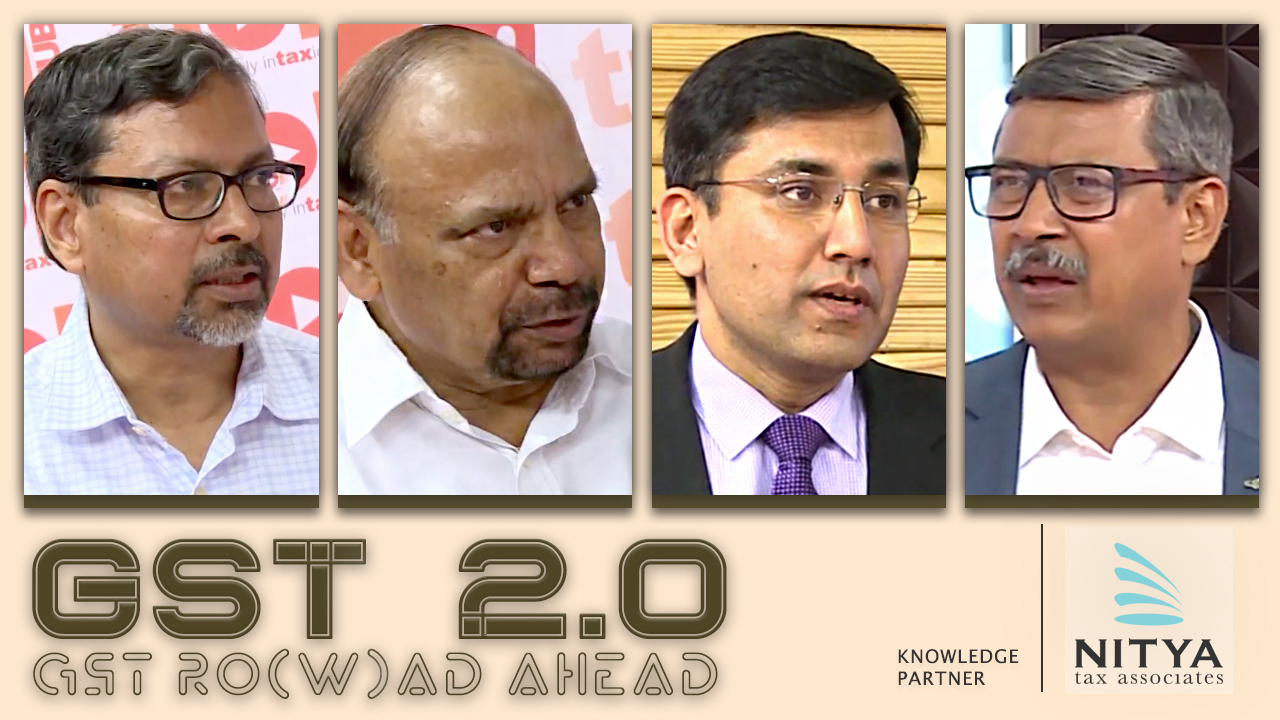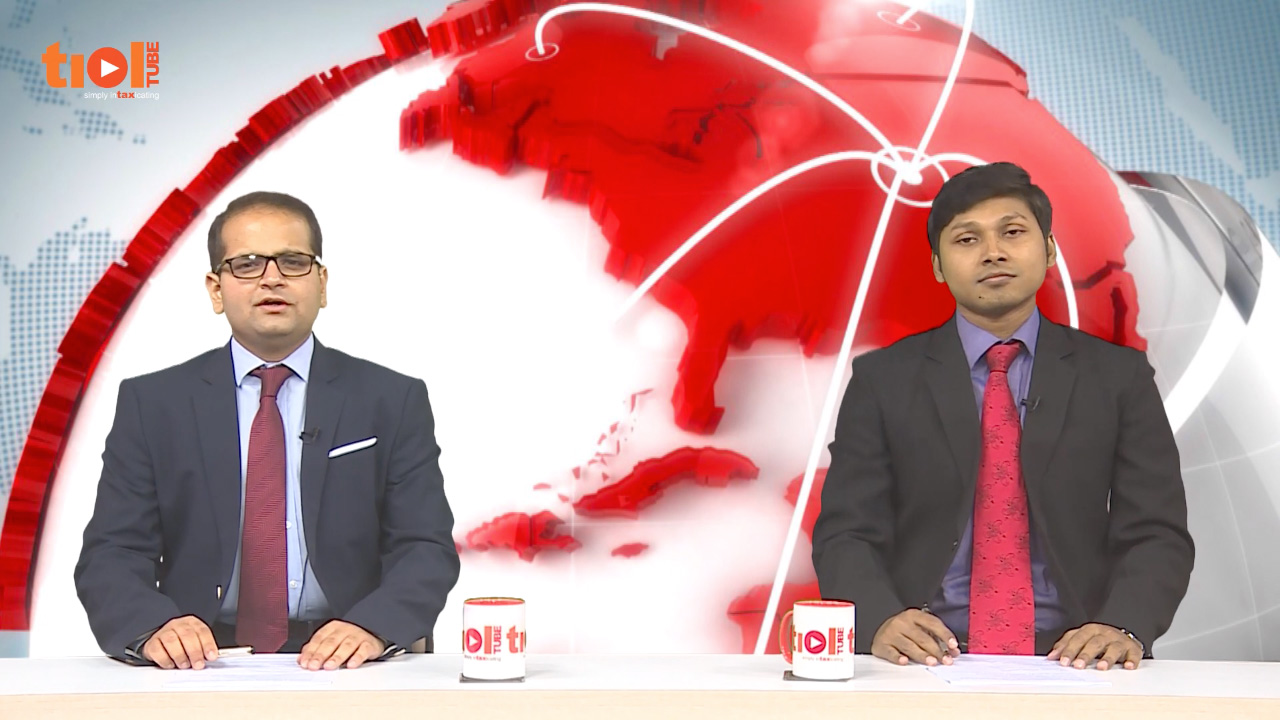|
SERVICE TAX
2019-TIOL-1684-CESTAT-DEL-LB
CST Vs Melange Developers Pvt Ltd
ST - Issue before Larger Bench is as to whether a sub-contractor is liable to pay Service Tax even if the main contractor has discharged the Service Tax liability on the gross amount.
Held: It is not in dispute that the activity undertaken by the sub-contractor falls under the category of WCS - From the provisions of the Finance Act, 1994 viz. s. 66 & 68, it is clear that every person (which would include a sub-contractor) providing taxable service to any person (which will include a main contractor) shall pay service tax at the rate specified in s.66 in the manner specified and the manner has been provided for in the CCR - Thus in the scheme of Service Tax, the concept of CENVAT credit enables every service provider in a supply chain to take input credit of the tax paid by him which can be utilized for the purpose of discharge of taxes on his output service - mechanism under CCR also ensures that there is no scope for double taxation - it may, therefore, not be open to the sub-contractor to contend that he should not be subjected to discharge the Service Tax liability in respect of a taxable service when the main contractor has paid Service Tax on the gross amount, more particularly when there is no provision granting exemption to him from payment of service tax - It needs to be noted that there is no provision for Input Tax credit on deemed sales in levy of VAT - submission of respondent assessee regarding ‘revenue neutrality' cannot be accepted in view of specific provisions in s.66 and 68 of the FA, 1994 - A sub-contractor has to discharge the service tax liability when he renders taxable service : CESTAT LB [para 9, 10, 11, 14, 15, 29, 30]
- Reference answered: DELHI CESTAT
2019-TIOL-1671-CESTAT-MAD
Inspirage Software Consulting Pvt Ltd Vs CGST & CCE
ST - The assessee-company claimed refund of Cenvat credit on Air Travel Agent Service during the relevant period - On adjudication, such refund was partly allowed - Such findings were upheld by the Commr.(A) - Hence the present appeal.
Held: The adjudicating authority alleged non-production of documentary evidence for rejecting the assessee's claim - Neither SCN was issued nor explanation was sought & the refund claim was summarily rejected - The Commr.(A) too upheld the rejection of refund by observing that the service in question is merely a facilitating activity unrelated to the assessee's business & not connected with the output service - Both authorities did not provide any reasons for arriving at such conclusion - Such service was utilized by the assessee's executives who travelled in order to achieve the business objectives & not for personal needs - Being used for business purposes, the assessee is eligible to avail credit on such service - The Revenue rejected the refund claim on assumption without examining the issue or without making any enquiries in proper perspective and the ad hoc rejection made is therefore improper, for which reasons the same is unsustainable: CESTAT (Para 2,3.1,3.2)
- Appeal allowed : CHENNAI CESTAT
2019-TIOL-1670-CESTAT-BANG
Microfinish Valves Pvt Ltd Vs CCT & CE
ST - The assessee is engaged in manufacture of Industrial Valves - During audit, it was noticed that the assessee have availed ineligible CENVAT credit - Therefore, a SCN was issued to assessee demanding therein wrongly availed CENVAT credit for the period from October 2010 to March 2012 along with applicable interest and imposition of penalty - The Audit of the record of assessee was conducted in the month of December 2012 wherein the issue of ineligible credit availed by assessee was raised on the basis of same Audit Report; without further verification a SCN is issued on 03.11.2015 that is nearly three years after the Audit and there is no material on record to show that the assessee have suppressed the material facts with intent to evade payment of duty - It is pertinent to note that in the earlier Audit conducted in year 2010 the report of which is on record, the Department did not raise this objection with regard to service provided by service provider and subsequently also there is no demand whereas the assessee is continuously availing the service from the service provider and paying the Service Tax on reverse charge basis and availing CENVAT credit - Further, when the Department was aware of all the facts relating to the payment of Service Tax to the service provider then alleging suppression of facts is not justified - In view of the decision in case of Dynamic Industries Ltd. - 2014-TIOL-1692-HC-AHM-ST , the impugned order is not sustainable in law as the entire demand confirmed by the Revenue is barred by limitation: CESTAT
- Appeal allowed : BANGALORE CESTAT
CENTRAL EXCISE
2019-TIOL-1198-HC-ALL-CX Kartikeya Enterprises Vs CCE & ST
CX - It is apparent from reading of the order passed by Tribunal that the penalty has been confirmed on the Company as well as its Director, without complying the provision of Rule 26 of CER, 2002 - Perusal of order would reflect that no discussion has been made with regard to imposition of penalty at all - In the circumstances, the matter is remanded to the Tribunal to determine as to whether there was actual involvement of the party as per Rule 26 of CER, 2002 in order to impose penalty on him: HC
- Appeal disposed of : ALLAHABAD HIGH COURT 2019-TIOL-1669-CESTAT-BANG
Impact Safety Glass Works Pvt Ltd Vs CCT
CX - The assessee is engaged in manufacture of toughened glass, laminated glass, bulletproof glass and automotive glass - They were proceeded against by Department alleging short-payment of Central Excise duty by not adopting valuation as per Section 4A of CEA, 1944 in respect of automotive glass cleared to certain customers in packaged condition - Both the authorities have not considered the amendment which was effected in 2015 by Finance Bill 2015 wherein the provisions with regard to payment of reduced penalty of 15% was introduced - Further, the Deputy Commissioner passed the O-I-O on 30/06/2015 whereas the reduced penalty equivalent to 15% of duty was paid by assessee on 01/06/2015 which was well within a period of 30 days from the passing of FA, 2015 on 14/05/2013 - Assessee was entitled to the benefit of reduced penalty as held by Tribunal in case of Sarogi Marketing - Therefore the imposition of equal penalty is not sustainable and therefore same is set aside - As far as penalty on Director of company is concerned, once the proceedings against the main noticee i.e. the company are concluded on payment of reduced penalty of 15%, the proceedings against the co-noticee stands concluded in view of decision in case of Orbit Jewellers - 2016-TIOL-1259-CESTAT-DEL - The impugned order is not sustainable - Therefore, appeals of assessee allowed insofar as the imposition of penalty in excess of reduced penalty of Rs.46,923/- already paid and personal penalty of Rs.1 lakh on the Director: CESTAT
- Appeals allowed : BANGALORE CESTAT
2019-TIOL-1668-CESTAT-AHM
Fosroc Chemicals India Pvt Ltd Vs CCE & ST
CX - The issue at hand pertains to the classification of goods under either Chapter 38 or under Chapter 32/34 - Accordingly, if the goods are classifiable under chapter 38, they would be assessable u/s 4 of the CEA 1944 or else u/s 4A if classifiable under Chapter 32 - The assessee claimed to have referred to the Department of Ocean Engineering at IIT Madras for expert opinion for determining the appropriate classification - The assessee claimed that the experts had given an opinion in respect of each and every item and had mostly classified them under Chapter 38 - However, the Revenue rejected the classification favored by the assessee - Hence the present appeal.
Held: There is merit in the assessee's claim that the O-i-A does not deal with items individually - The O-i-O in fact, deals with each product individually and discusses each item in detail considering the classification claimed by both sides, literature and HSN Notes etc., expert advice and opinions on these items - The O-i-A omits to deal with the items product-wise & there are no findings in respect of each group - The O-i-A is a general order & is non-speaking in nature - Hence such O-i-A is quashed & the matter is remanded for fresh consideration by the Commr.(A): CESTAT
- Case remanded : AHMEDABAD CESTAT
CUSTOMS
NOTIFICATION
dgft19not008
Amendment in import policy conditions of cashew kernels (broken/whole) CASE LAWS 2019-TIOL-1667-CESTAT-MUM
TBK India Pvt Ltd Vs CC
Cus - This appeal lies against impugned order which has included 'royalty' and 'lumpsum fees' in assessable value of imports effected by them from M/s TDK Toshiba Limited, Japan, a related person of theirs - The original order accepting the invoice value, came up for review on expiry of three years and the order of continuance for a further period of three years, having been renewed, was sought to be quashed in appeal - The finding of first appellate authority, who ordered the addition of royalty of 3% and 5% of selling price along with the lumpsum fees is challenged now by assessee - The internal procedures for providing expert consultation to statutorily empowered assessing officers, even if of long standing existence, do not vest the institution established for such purpose with statutory acknowledgement; in keeping with the tentativeness of findings of this internal advisory mechanism, assessments, guided by the findings, are retained as provisional, under section 18 of Customs Act, 1962, till finalization on a future date - It is that potential as a trigger for resort to provisional assessment that is impugned here - As on the date of O-I-A imposing the guideline, no import had been subject to it - Nor is there any record of any detriment to importers thereafter and, if it had been an irreversible detriment, an appeal would have been resorted to as surely as night follows day - Customs Act, 1962 is concerned with levy of duty, as well as the enforcement of prohibitions, under law, on import/export goods - Other consequences such as differential duty, refund, drawback, fines and penalties may arise but only in consequence - The possible detriment that may arise on a future date is not a grievance that should be entertained unless and until it does translate as one upon occurrence of import or export of goods - Tribunal do not interfere with proceedings under section 18 of Customs Act, 1962 except if terms of such assessment is a cause of grievance - Even so, no incidence of provisional assessment is impugned before Tribunal - Tribunal is also not vested with authority to approve or disapprove an advance ruling which has yet to place on burden on goods under Section 46 of Customs Act, 1962 - Accordingly, appeal dismissed as premature without going into the merits of the issue: CESTAT
- Appeal dismissed : MUMBAI CESTAT
|









